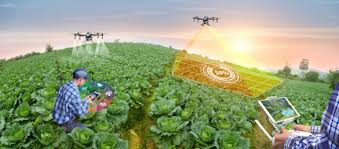Agricultural Technology aims to make work in the field more efficient and convenient. Each year, there are various new agricultural innovations and, occasionally, ground-breaking technologies. As agribusiness continues to modernize and grow, it is becoming increasingly crucial for agricultural consultants, food producers, and technology managers to be knowledgeable and up-to-date with the latest technological standards.
Water, fertilizer, pesticides, and other inputs are no longer applied “by eye” or uniformly across the field by large agricultural producers. The use of advanced agriculture technologies allows for the precise application of only what is required in each location, as well as the careful tailoring of treatment for each plant.
Benefits Of Technology In Agriculture :
The implementation of smart agricultural technology is advantageous for all players in the agri-food chain. With its use in optimizing and automating agricultural operations and field activities, growers and landowners can now save significant amounts of time and effort. These are just a few examples of how farming has benefited from advances in agriculture technology.
using less water, fertilizer, pesticides, and other inputs allows agricultural producers to cut costs and keep more of their profits.
by preventing or drastically reducing the amount of chemical runoff into waterways, businesses lessen agriculture’s impact on the environment and take steps toward greater sustainability.
increasing crop yields while decreasing labor inputs.
making it easier for farmers, agronomists, or other agricultural workers to communicate and coordinate activities using mobile devices, apps, or web-based resources .
Lowering barriers to accessing agricultural insurance and financial services as well as market and technological data .
mitigation of the damage that could be caused by pests, natural calamities, and bad weather in agriculture with the help of affordable, always-on agricultural monitoring systems.
increase in farm income through improved product quality and increased quality controls.
timely recognizing nutrient deficiency in plants and notifying agricultural producers of the type and amount of fertilizer and other amendments needed.
ability to foresee potential problems on the farm through the visualization of production patterns and trends gleaned from an analysis of current and historical agricultural data. By estimating their overall crop yield, agricultural producers can precisely budget for the next growing season and better prepare for emergencies.


